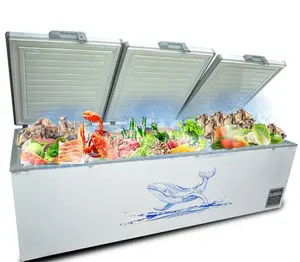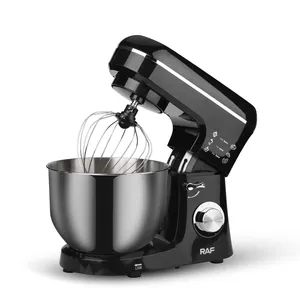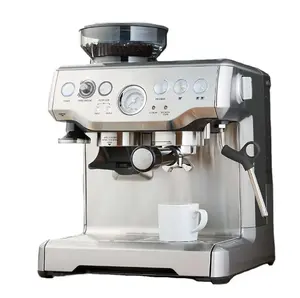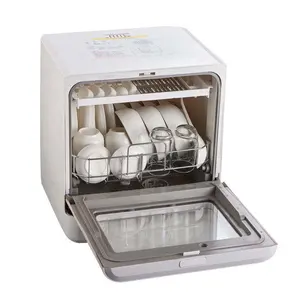Popular in your industry

















































Related Searches:






























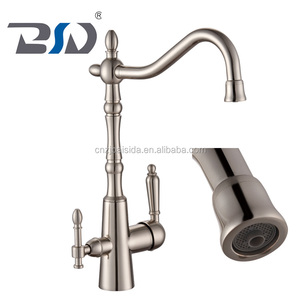






































































 Ready to Ship
Ready to Ship


























Top categories
About drinking water filter faucet
Introduction
In the modern world, the importance of clean, safe drinking water cannot be overstated. Yet, many of us unknowingly consume water laden with contaminants right from our kitchen faucets. This article explores the necessity of a drinking water filter faucet in your kitchen, a simple yet effective solution to this problem. We delve into the various types of filters available, their unique features, and how they can significantly improve your health and lifestyle. We also discuss the environmental impact and cost-effectiveness of these systems, making a compelling case for why a drinking water filter faucet is a must-have in every kitchen.
The Importance of Clean Drinking Water
Access to clean, safe water is crucial for health and lifestyle. Every year, 3.575 million people die due to diseases related to drinking unclean, unsafe water. Drinking purified water prevents water-borne illnesses such as cholera, diarrhea, dysentery, hepatitis A, typhoid, and polio. It also raises sanitation standards, as clean water is essential for washing food and bodies. Hydration with purified water helps the body flush toxins and is vital for optimal functionality. Clean water also boosts agriculture and food production, ensuring safe food sources.
Understanding a Drinking Water Filter Faucet
A faucet water filter is a practical and efficient solution for ensuring clean drinking water. It operates by removing impurities from the water as it flows from the tap. The filter requires an initial flush to activate and typically lasts between two to four months, depending on usage and water quality. It's important to note that each filter has specific certifications indicating its effectiveness and quality.
Types of Drinking Water Filter Faucets
Drinking water filter faucets come in various types, each with unique filtration capabilities. Activated Alumina filters are excellent for removing fluoride or arsenic. Alkaline and Water Ionizers improve water's taste and health benefits but lack good filtration abilities. Carbon Block and Activated Carbon filters are great at adsorbing pollutants. Ceramic Filters trap larger matter and can kill bacteria if treated with silver. Distillation purifies water by boiling and cooling, while Reverse Osmosis forces water through a semipermeable membrane, removing contaminants. Sand and Sediment Mesh filters help filter large particles, and Ultraviolet Light treats microorganisms effectively. Each type has its advantages and shortcomings, so choose based on your specific needs.
Under Sink Filters
Under sink water filters are installed below your sink, providing a constant supply of filtered water straight from the tap. They are a popular choice due to their ability to remove more contaminants than most pitcher-based options. These systems don't take up valuable counter space and eliminate the need for refilling a tank or waiting for water to filter through a block. They effectively reduce contaminants such as chlorine, chloramines, lead, and others, ensuring clean, healthy water for all your needs.
Countertop Filters
Countertop water filters are point-of-use systems that sit on your countertop. They filter water on demand, providing great-tasting, clean water instantly. The installation is easy, requiring only a simple attachment to your kitchen faucet. However, they do take up space on your countertop and their effectiveness varies. Some models offer advanced three-stage filtration and even chill your water directly inside the unit.
Faucet Mounted Filters
Faucet-mounted filters provide filtered water on demand. They remove more contaminants than most pitcher filters due to the water pressure in the pipes. These filters are easy to install on a standard faucet and have a built-in flow meter and indicator light to signal when it's time to replace the filter cartridge. However, they cannot be installed on faucets with integral pull-out sprayers.
Benefits of a Drinking Water Filter Faucet
A drinking water filter faucet offers numerous benefits. It improves the taste of your water by eliminating unpleasant odors and flavors. It removes harmful contaminants like lead, reducing health risks. The system can also decrease the risk of certain cancers by removing chlorine and its byproducts. It filters out over 2,100 different toxins that can contaminate drinking water. It's cost-effective, saving you money compared to buying bottled water. It's environmentally friendly, reducing plastic waste from bottled water. Lastly, these systems are inexpensive to maintain, often designed to work without electricity.
Improved Water Quality
Drinking water from a filter faucet significantly improves water quality. It removes harmful contaminants such as heavy metals, particulates, and pollutants that may be present in your tap water. By filtering water, you can enjoy all the health benefits of hydration without the worry of contamination. This kind of water treatment can serve as a stopgap between you and the harmful substances that may be found in the water supply. Filters that use an activated carbon system are incredibly useful for filtering out chlorine, giving you clean, pure water.
Cost-Effective in the Long Run
Investing in a drinking water filter faucet is a cost-effective solution in the long run. While the initial cost might seem substantial, the ongoing cost is significantly lower than the recurring expense of bottled water, leading to substantial savings. One of the significant benefits is the reduced reliance on bottled water. With a constant supply of clean and safe water straight from the tap, households can significantly reduce bottled water purchases. This translates to considerable savings on water expenditure over time.
Environmental Impact
Water filtration products, like drinking water filter faucets, play a significant role in reducing environmental impact. They allow users to 'bottle their own' drinking water, drastically reducing plastic waste compared to single-use plastic water bottles. For instance, one water filter can avoid the use of thousands of plastic water bottles. Additionally, water filters can help reduce fossil fuel consumption, as less plastic production means less reliance on fossil fuels. By utilizing eco-friendly products like modern water filters, we can help to reduce plastic manufacturing, greenhouse gas emissions, and dangerous chemical byproducts.
Ease of Installation and Use
Under-sink water filters, a type of drinking water filter faucet, are easy to install and can greatly improve the quality of your water. To install, you need to break the water connection, connect the filter, and then run the water to activate the carbon and flush out contaminants. They are beneficial and with various types to choose from, you can find one that best works for you. Remember, don't let the running water go to waste during the process; use it to wash dishes or water your garden.
Choosing the Right Drinking Water Filter Faucet for Your Kitchen
When choosing the right drinking water filter faucet for your kitchen, consider factors such as ease of installation, quality certifications, and filter lifespan. Some top picks are easy to install and have quality certifications. Remember, filters typically last two to four months, so consider the cost and availability of replacement filters. Also, consider the type of contaminants the filter can remove to ensure it meets your specific water quality needs.
Conclusion
In conclusion, upgrading your kitchen with a drinking water filter faucet is a crucial step towards ensuring a healthier lifestyle and a more sustainable environment. These systems not only provide access to clean, safe water but also offer numerous benefits such as improved taste, reduced health risks, and significant cost savings in the long run. They also play a significant role in reducing our environmental footprint by minimizing plastic waste from bottled water. When choosing a filter, consider factors like ease of installation, quality certifications, and filter lifespan to ensure it meets your specific needs. Ultimately, investing in a drinking water filter faucet is an investment in your health, your wallet, and our planet.
